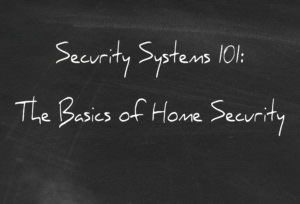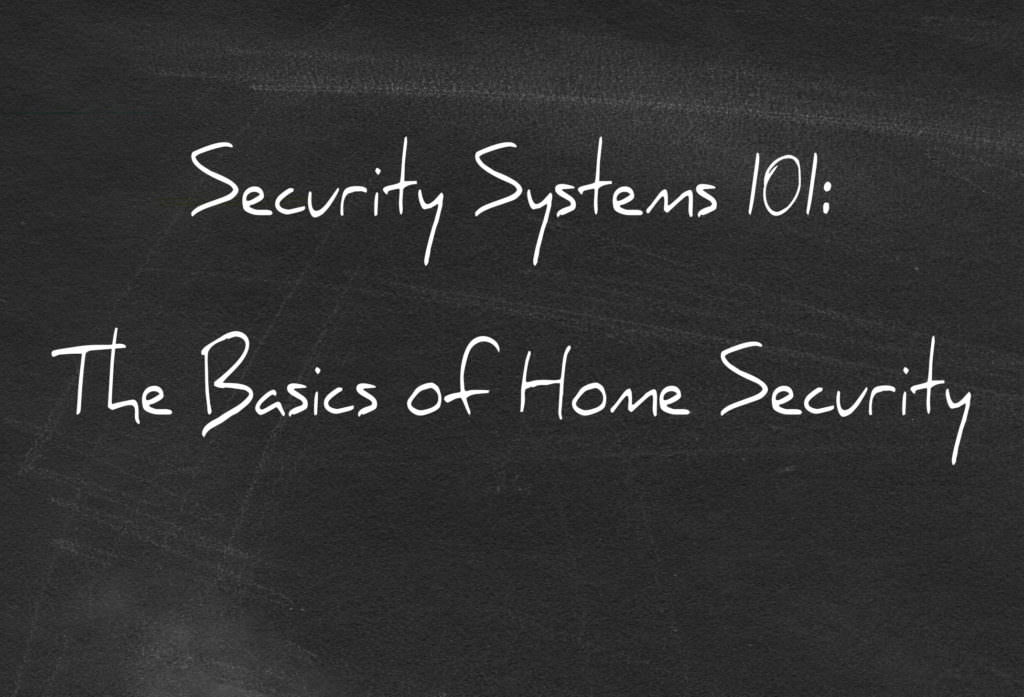
When you’re considering getting a security system for your home, you’ll have some questions.
- Why do I need a security system?
- What’s in a security system?
- How does a security system work?
- What companies should I consider?
To help you better understand your security system options, we’ll answer all of these questions and more.
Why do I need a security system?
One great reason is to protect yourself from burglary. According to the FBI, a burglary occurs somewhere in the United States every 15.4 seconds. In 2010, there were over 2.1 million burglaries. On average, a burglary results in a dollar loss of over $2,000.
Homes without security systems are 3 times more likely to be broken into than homes with security systems. A study by the University of North Carolina at Charlotte’s Department of Criminal Justice and Criminology found that most burglars try to determine if a house has an alarm system before attempting a home invasion. An overwhelming majority of convicted burglars say that they intentionally avoided homes with security systems.
Another great reason for a security system is the peace of mind. You’ll feel better knowing your home and family are protected not just from burglars, but from environmental hazards such as fire and carbon monoxide. You’ll be able to leave your home knowing it’s protected, whether you’re gone at work or on vacation.
What’s in a security system?
Equipment
Main components of a security system include a control panel and various types of sensors. These can include sensors to detect when a door or window has been opened, when a window has been broken, when there is movement within the home, and other life safety issues such as the presence of smoke, carbon monoxide, water, and high or low temperatures. You can also add other features such as key fobs and video cameras.
Monitoring

A monitored home security system is connected to a 24/7 monitoring station that is notified whenever an alarm is triggered at your home. Without monitoring, your system will sound a siren when an alarm is triggered, but neither you nor the authorities are notified. Without monitoring, you are relying on the noise of your system to scare off intruders.
Interactive/Smart Home Services
Interactive services allow you to remotely control your security system through your computer, tablet, or smartphone. You can use these smart home services to remotely arm or disarm your system, open or close your garage door, and adjust your thermostats, lights, or locks. Your “smart” security system can also give you real-time notifications and let you watch live video remotely.
How does a security system work?
A security system is designed to detect intruders and sound an alarm. If you have a monitored system (which we recommend), when an alarm is triggered, a signal is sent to a monitoring station who will then either notify the people on your call list or dispatch the authorities (depending on your preference).
What companies should I consider?
First, you’ll want a company you can trust. Make sure any security company you let into your home is a reputable business – check the Better Business Bureau (BBB) and Google them. What you can find out about a company can tell you a lot. Do they have a website? An office? A local presence? How long have they been in business?
Next, you’ll want to consider whether you want a company that provides multiple services or focuses solely on life safety. Do you really want your cable TV/Internet/phone provider to be the one protecting your home and family? Rather than getting your home and family’s safety as a bundled service, a company that specializes in life safety might be a better choice.
Security systems may have an upfront cost, but they can save you money over time. Getting a security system may qualify you for up to a 20% discount on your homeowners insurance. You can also get cost savings by using the security system in your smart home to create an automated schedule for your thermostat.
No matter what features you get with a home security system, you’ll always feel assured your home and family are protected 24/7. After all, you can’t put a price on peace of mind.

